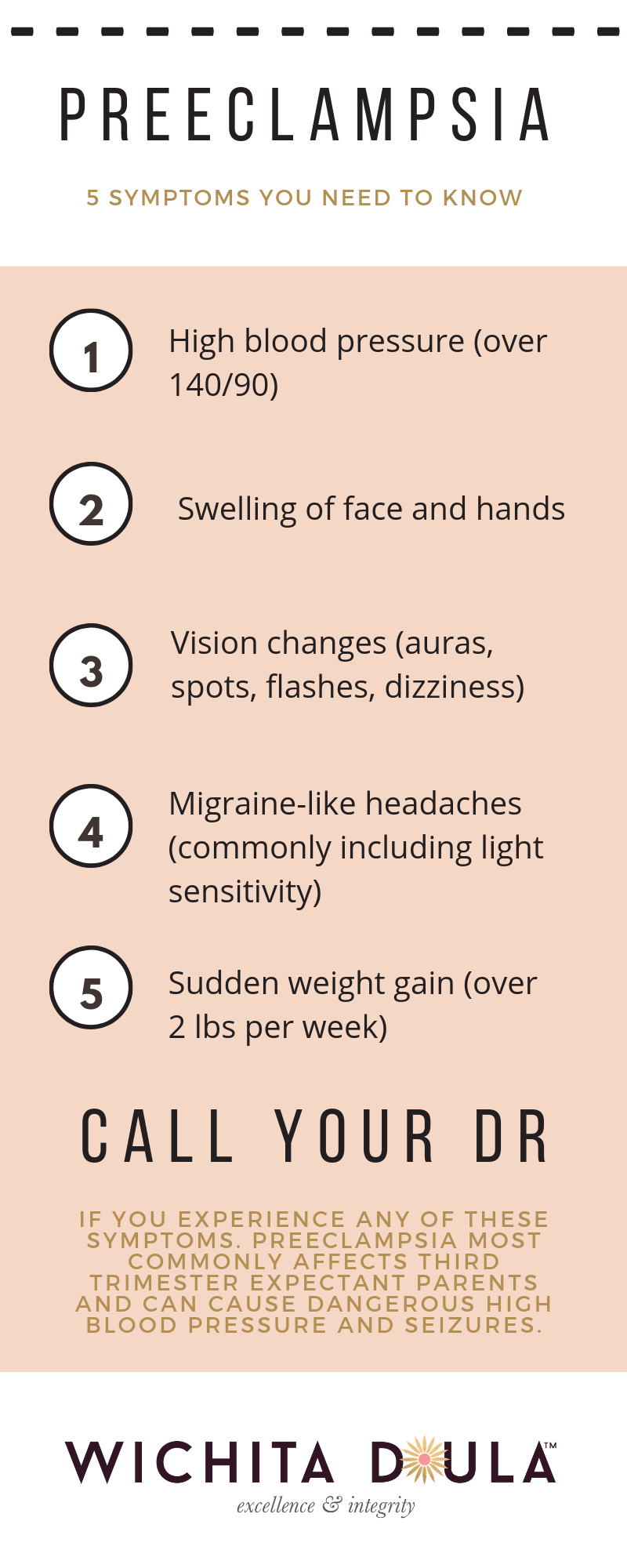Preeclampsia: 5 Symptoms You Need to Know
- Preeclampsia Awareness Month -
What is Preeclampsia?
Preeclampsia is a potentially deadly perinatal disorder which affects up to 8% of all pregnancies, typically in the third trimester. This dangerous condition, mostly characterized by high blood pressure, can lead to seizures, brain damage, premature birth...
At your prenatal appointments, you have noticed that your OB or midwife checks both your blood pressure and your urine. And in your third trimester, they start asking you if you've had any headaches or vision problems. They are checking for signs of preeclampsia - two hallmarks being high blood pressure, and protein levels in your urine. This is why consistent and competent prenatal care is SO important! Don't skip your prenatal visits, and ask questions if you are curious or concerned about anything.
Preeclampsia is sometimes called a "silent killer" because in some cases you don't notice any symptoms, or you think the symptoms are just normal pregnancy stuff.
PREECLAMPSIA SYMPTOMS
- Swelling. Now, most pregnant folks experience this to some degree. But if it's your face and hands that are swollen, I'm going to need you to tell your doctor. You also don't want to see any "pitting edema" - where you press your finger into the swollen area and it leaves an indentation.
- Headaches. Again, everyone gets headaches sometimes, right? But a possible preeclampsia-related headache can be kind of like a migraine with light sensitivity, which doesn't go away with your usual headache remedies.
- Random pains. Now I KNOW you're thinking "girl, that's pregnancy." But if you experience abdominal pain under your right ribs; shoulder pain, or lower back pain, especially when combined with any of these other symptoms, tell your doctor.
- Vision changes. It is NOT, I repeat NOT normal to start seeing spots, blurs, flashes, or auras.
PREECLAMPSIA TREATMENT
The "treatment" is pretty much to have the baby. Most people with preeclampsia will start to see improvement after delivery. However, depending on severity, if it is too early in the pregnancy to do an induction or Cesarean, you might be monitored frequently and given blood pressure and anti-seizure meds.
You should also know that it's possible to have postpartum preeclampsia - even if you didn't have it during pregnancy. If you experience these symptoms up to six weeks after birth, skip the dr office and go to the ER.
If you've gone through the roller coaster that is preeclampsia, you are an absolute WARRIOR and I'd love to hear about your experience.
Do you know anyone who is pregnant? Share and potentially save a life.

